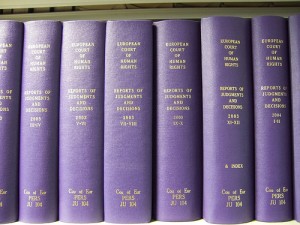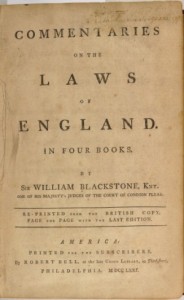The Continuing Importance of the Protection of Fundamental Human Rights at Common Law: Dinah Rose QC and Lord Hoffman – Sean Knight

Human Rights at Gray’s Inn – Credit: Kotomi
The start of another term at City also means another opportunity to write about my experiences attending the various legal events throughout London. As I have begun to narrow my focus down in my own legal interests, I have also been lucky enough to attend several good discussions and events about human rights, this one above all. This latest event (23rd October) was a discussion about the importance of fundamental rights at common law, with speakers Lord Hoffman and Dinah Rose QC. Before delving into the discussion of fundamental rights at common law versus fundamental rights supported by treaty and statute, proper attention should be paid to the speakers, who lent their valuable insight to the night’s event.
Lord Hoffman needs little introduction, but I will attempt to do justice to one nonetheless. Born in Cape Town, South Africa and educated at the University of Cape Town and then Queen’s College, Oxford, he then proceeded to the Bar from Gray’s Inn in 1964. Lord Hoffman then began his ascension into the high ranks of the judiciary, from his time in the Courts of Appeal in Jersey and Guernsey, through his position as Lord Justice of Appeal and eventual appointment as a Lord of Appeal in Ordinary, and many of his judgments in the Court of Appeal and as a Law Lord are those we are all familiar with.
An unconventional jurist, his propensity for challenging the norm was well exampled on the evening’s discussion, and it was a pleasure to hear his views on the subject.
Dinah Rose, QC, will also be well known to those who are up to date on legal battles on rights in the UK. A barrister for Blackstone Chambers specialising in human rights, she has many well known cases in her list of achievements, including battling extraordinary rendition in the case of Binyam Mohamed. She also recently appeared for Julian Assange in his appeal against his extradition to Sweden. She is also a strong opponent of the Justice and Security Act 2013 and has spoken against it at length. Dinah is also highly regarded in other fields of law, employment law for example as evidenced by her 2012 investigation at the request of the BBC into sexual harassment and bullying practices. A more extensive list of her cases and accomplishments would encompass the whole of the article, but her page at Blackstone Chambers provides a good summary.
That sets up the speakers, but there is no event without the stage, and there are not many better places for a legal event than Gray’s Inn. It is difficult to walk through Gray’s Inn without being reminded of those who came before you, and if your interest in law extends beyond the practical exploration of a career, the walk instills a certain excitement, a sense of possibility and involvement. I have always enjoyed my lectures and groups, but they are the foundation, the bread and butter of the meal, whereas events like these or attending the courts is a whole other experience. When you sit down before the event, or afterward, during the social period, you won’t find other students discussing their coursework. Instead, you’ll be next to barristers discussing their most recent cases, or you may find yourself next to a judge and a professor discussing some fine point of law. All around you are people going around their profession, not learning the law, but living the law and even crafting it, and Gray’s Inn creates the atmosphere better than most.
With the stage and the speakers set, nothing more exists but to start the event, and Dinah Rose wasted no time in getting down to the crux of the matter, posing two questions as the basis of her discussion. Are there actually fundamental rights at common law, and if so, what are they? In answer, she provided the example of a John Ford western, The Man Who Shot Liberty Valance, a classic western with John Wayne and Jimmy Stewart, where Stewart plays a lawyer trying to bring civility to the west armed only with a copy of Blackstone’s Commentaries on the Law of England. As she sees it, Blackstone’s text is the foundational text on fundamental rights for anyone seeking fundamental rights at common law. As directly relevant to the discussion, she quoted this passage from chapter 1:
“For the principal aim of society is to protect individuals in the enjoyment of those absolute rights, which were vested in them by the immutable laws of nature, but which could not be preserved in peace without that mutual assistance and intercourse which is gained by the institution of friendly and social communities. Hence it follows, that the first and primary end of human laws is to maintain and regulate these absolute rights of individuals.
Such rights as are social and relative result from, and are posterior to, the formation of states and societies: so that to maintain and regulate these is clearly a subsequent consideration. And, therefore, the principal view of human laws is, or ought always to be, to explain, protect, and enforce such rights as are absolute, which in themselves are few and simple: and then such rights as are relative, which, arising from a variety of connections, will be far more numerous and more complicated. These will take up a greater space in any code of laws, and hence may appear to be more attended to—though in reality they are not—than the rights of the former kind. Let us therefore proceed to examine how far all laws ought, and how far the laws of England actually do, take notice of these absolute rights, and provide for their lasting security.”
First written in 1765, but still powerful today, this quote was so integral to the event that I thought it best to be recreated here in full. It was Blackstone’s text that also outlined the absolute rights, three, which are followed by subrights. They are as follows; firstly, security of the person, including life, health and reputation, secondly liberty, protected by the writ of habeas corpus, and the third is property. Subsidiary to those rights are auxiliary rights that serve as barriers to the possibility of losing the primary rights. Those auxiliary rights are the powers of Parliament, judicial review, and the right of access to justice, including the right to fair hearing and impartial tribunal, and the right to know the evidence against them. Having effectively now taken us through to the undeniably affirmative answer to her first question of whether or not fundamental rights at common law existed, Dinah Rose turned to task of illuminating why fundamental rights at common law are so important.
Perhaps the most important pragmatic reason is that judges like common law remedies far more than they like relying upon the Strasbourg case law. This approach has the benefit of recent approval in the case of Osborn v The Parole Board [2013] UKSC 61, where Lord Reed said regarding Blackstone’s right to fair hearing, “the importance of the HRA does not supercede the protection of human rights under the common law, or create a discrete body of law based on the judgment of European courts. Human rights continue to be protected under our domestic law, interpreted and developed in accordance with the Act when appropriate…In truth (the European court law) sinks through and permeates our domestic law.” [Read the post on the UK Human Rights Blog] The excerpt from his judgment and the judgment in full, speak well to the preference that our domestic courts have for an appeal that brings common law as well as European case law into the fold.

Credit: ex_libris_gul
Another reason for common law to be important is that in some respects, the common law gives greater protections. The Convention, for example, gives minimum rights, a floor below which rights cannot fall, but common law can elevate rights above that floor. For that reason, common law may be an advantage.
These tend to be in the areas that Blackstone illuminated as his core principles, as exampled by the case of Rahmatullah, a habeas corpus case where the British Forces handed over a prisoner to the Americans under the clause that he be handed back for trial or detention by the UK should they request, and the Al Rawi case regarding closed material proceedings, which of course deals with Blackstone’s right to knowledge of evidence against you. Of importance to the discussion is that Article 6 is satisfied by a closed material proceeding, while our common law is not.
Other cases involve topics like the access to justice, exampled by the 72 hour notice for immigrants slated for removal from the UK. The principle being of course that immigrants are provided at common law with the access to justice, and that a no notice removal does not permit them the time necessary to avail themselves of the legal system. All these and more cases demonstrate the power of common law as opposed to treaty and European case law when protecting fundamental rights. Dinah Rose also makes a strong argument for using common law protections of private property in the current climate of rampant surveillance. Common law precedent is strongly for the protection of privacy, versus the mediocre protection of Article 1. Entick v Carrington is strongly in favour of privacy on this subject, for example, and may well be used as a basis for protecting the people from illegal searches, physical or electronic. She emphasises the likely pushback against the upcoming Security and Justice Act as an area where common law and statute is likely to be hotly contested by the government in both our courts and in the European courts.
Dinah Rose concluded by spending some time speaking to the potential situation that could arise from a UK withdrawal from the European sphere. While our common law has progressed even during the period where we have been involved in the European development of fundamental rights, there are still areas where it is deficient, and where we would see a concern were we to withdraw. In terms of family and private life, and investigative situations, handled by Article 2 and 8 now, the common law is still inadequate to the protections of the articles. A concept must be entertained that perhaps the common law would have achieved the same protections as the Articles in areas where it is now deficient, if it had not been supplanted by statute and treaty, and we must explore the potential that should a European withdrawal happen, there would be a period of deficient common law in certain areas.
Lord Hoffman takes the passed ball very effectively at that point by discussing at more length the comfort with which UK judges take up common law fundamental rights versus the appeal to European certified rights. In point of fact, he argues, the public as well is much more likely to be receptive to the expansion of fundamental rights if they are to be convinced that it comes from a long standing history of UK support of freedom, than if that expansion is perceived to be imposed from the European courts and civil system.
Of significance to Lord Hoffman’s topic is the extent to which or possibility of common law protections being watered down by statute. The main protection is always the court’s ability to construe both primary legislation and secondary legislation. As to construction, Lord Hoffman’s Simms case is recalled, and Lord Hoffman insists that construction itself is a silliness, that there are not really rules of construction as much as there is the proper application of common sense. The first start of his common sense application, that Parliament is unlikely to be doing something silly or incorrect, is then worked backward to find an interpretation of the statute that would be sensible. He expounds upon this in R v Special Commissioner and Another, ex p Morgan Grenfell [2002] UKHL 21, where he states that courts will “ordinarily construe general words with a literal meaning that would override fundamental rights, as not having intended to do so”. However, he is clear in noting that while accidental violations of fundamental rights are simply solved by the courts using construction, or as he calls it, the proper application of common sense, a direct violation by Parliament would be very difficult for the courts to deal with, considering the powers of Parliament under the UK constitution.
In those rarer but still existing situations, construction fails because of the express purpose of the statute. Liversidge v Anderson is an example of this in Lord Hoffman’s mind, where he stands with the majority in terms of their agreement with the statute. With regards to Section 3 of the HRA and the Simms case, Lord Hoffmann believes that where it discusses interpretation, it actually means amending because of the power it conveys. It crosses a “divide” between correcting misuse of language and correcting the consequences of what they did expressly intend to do when creating the law. In effect, the Simms case was a matter of correcting language whereas Section 3 of the HRA appears to be about correcting meaning, which brings up a critical question when discussing the power and protections of fundamental rights at common law, namely, is it democratic, is it right for judges to use the powers to amend the law versus making a declaration of incompatibility and giving it back to Parliament, the elected body, to correct? Dinah Rose injects here opinion here in that Section 3 is not to be considered undemocratic, because in itself it was created by Parliament and is open to interpretation, which saves it from being something that gives legislative power to the courts by permitting amending.
There is another question of when or if an act sought to prevent interpretation of it by expressly limiting or blocking judicial review of an Act. Dinah Rose concludes that this is fundamentally impossible because without judicial review, there is on the face of it no definition of what the power is. In effect, the courts define the powers once the Act creates them. Lord Hoffmann expresses a hesitance to weigh in on the subject, offering the pragmatic view that in the unlikely event that such an Act or Acts came into existence, the subjects in question would likely be beyond the power of any court or lawyer to help them. At that point it would become a societal problem rather than a problem of judicial review or governmental overreach. There is an essence in the wrapping up of this discussion that fundamental rights at common law are strong right up to the point at which the government simply begins to ignore the courts, at which point the concept becomes moot. This concluded the discussion element of the event and kicked off a series of questions, many of which were quite good but which essentially constituted a recap and further discussion of an event which I’ve already written extensively, in fact likely too extensively.
Perhaps my zeal in the article can be explained away and forgiven in the light of understanding how these events affect me during the year. The stage and the people always invigorate me, and I find myself at the university the next day with more energy and zeal than I had going into the week. I would encourage anyone feeling overwhelmed by the term not to take some time off, but to go get involved in the field outside of the university. It provides a perspective that lengthens out into the years to come, whereas we are often found in a time perspective that sees us looking only to the next week, the next lecture, the next tutorial, or perhaps the next exam period. The experience of being involved in the legal world outside of the university provides that greater context which can then be transferred into greater understanding of where one may fit into the career going forward, be it business, fundamental rights as discussed this night, or academic.
As with many of the events I have attended through my time at City, this one was equal parts satisfaction and illumination, and I found myself greatly enjoying the experience. Lord Hoffmann and Dinah Rose QC created a discussion that was well reasoned and explained things in a perspective that is not often posed, and that is something that can never be undervalued.
Thanks to Sean Knight, LLB2 student at The City Law School, for writing up this excellent event.

